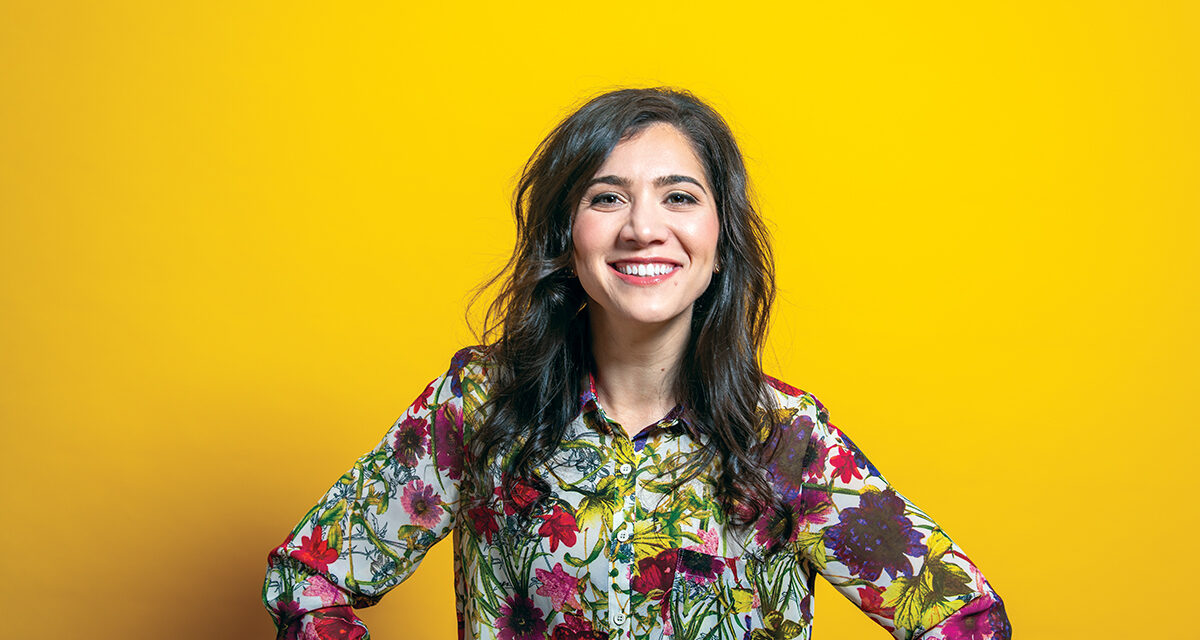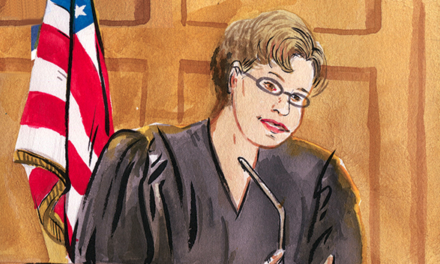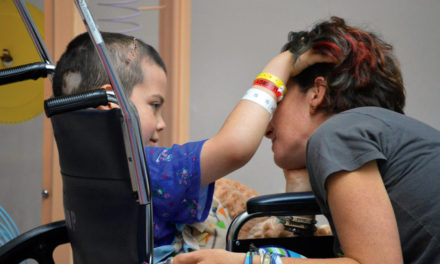At 34 years old, Kimberly Dickstein Hughes is pushing boundaries to bring her classroom to life.
After about 7 years teaching high school English language arts a stone’s throw from where she grew up in Voorhees, NJ, Kimberly Dickstein Hughes felt herself inching toward a monumental shift. It stemmed from a desire to make a real difference in the world, and she applied to the Peace Corps, hoping for an assignment in the Philippines where she felt best suited to make an impact. The stars aligned, and she got her top-choice post. But just as she approached the turn for what might have been a mammoth life detour, she experienced a meaningful moment in class that changed everything.
It was a day like any other at Haddonfield Memorial High School, and Dickstein Hughes was teaching William Shakespeare’s Macbeth to a junior class. Her students started staging scenes from the play, and Dickstein Hughes reflected back on some of what they were saying. “I remember one student saying something like, ‘Oh, I really love that idea.’ I said, ‘That was your idea!’ That moment of affirmation and my students owning their own abilities was really exciting,” she says. “I began to think, I don’t know if I could make this kind of difference in another place. Since that day, there have been so many times when I look out at my students and think, This is good work. This is righteous work, and I’m exactly where I need to be.”
That decision to continue teaching in Haddonfield and all those that preceded and followed led her to become New Jersey’s 2020 Teacher of the Year, growing her sphere of influence and the power of her impact. But none of that was preordained. In fact, Dickstein Hughes first enrolled at Rutgers University in New Brunswick thinking she would follow a track into politics. Even though she taught swim lessons and Hebrew school and tutored kids in a buddy program, teaching wasn’t initially in the life plan. “I had a certain idea of what it means to be successful. I think there’s a narrative that to be a teacher is to be just a teacher. We need to place a higher value on our educators. Our students feel it. I felt it as a kid,” Dickstein Hughes says. “Even though I loved my teachers growing up, I almost fell prey to that minimization of such an integral profession.”
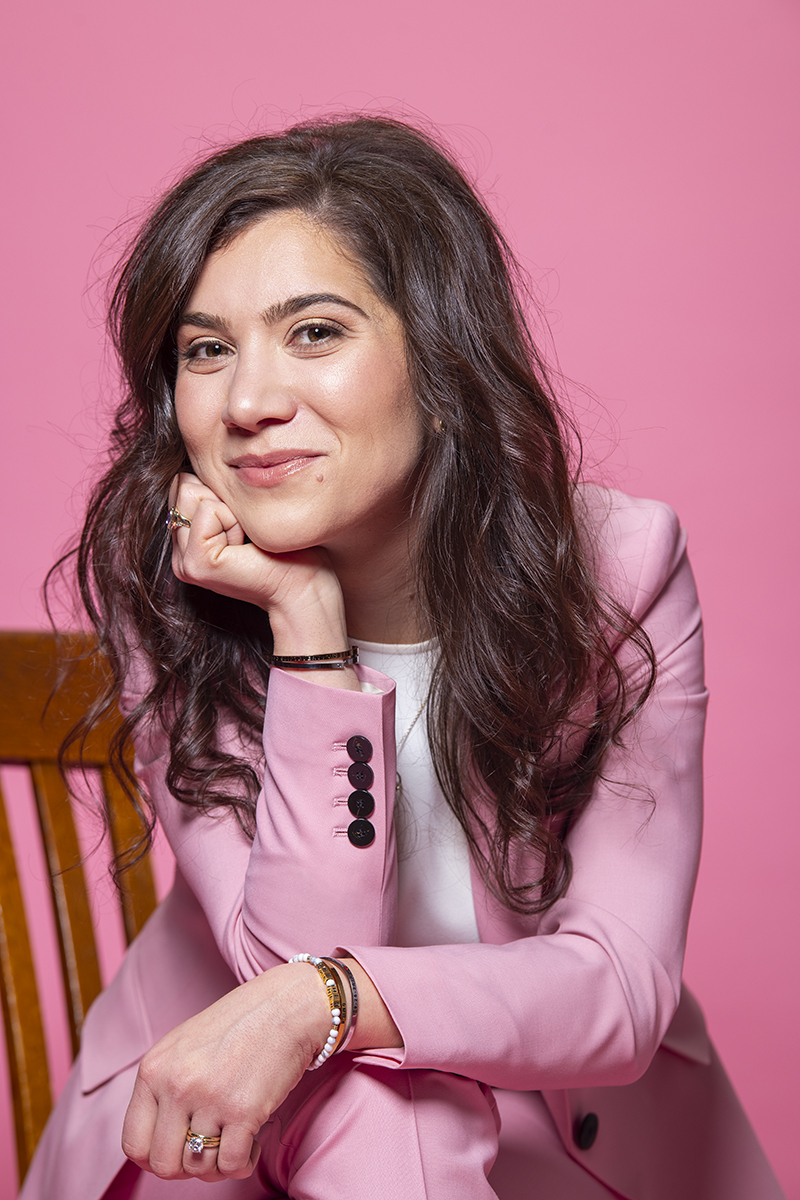
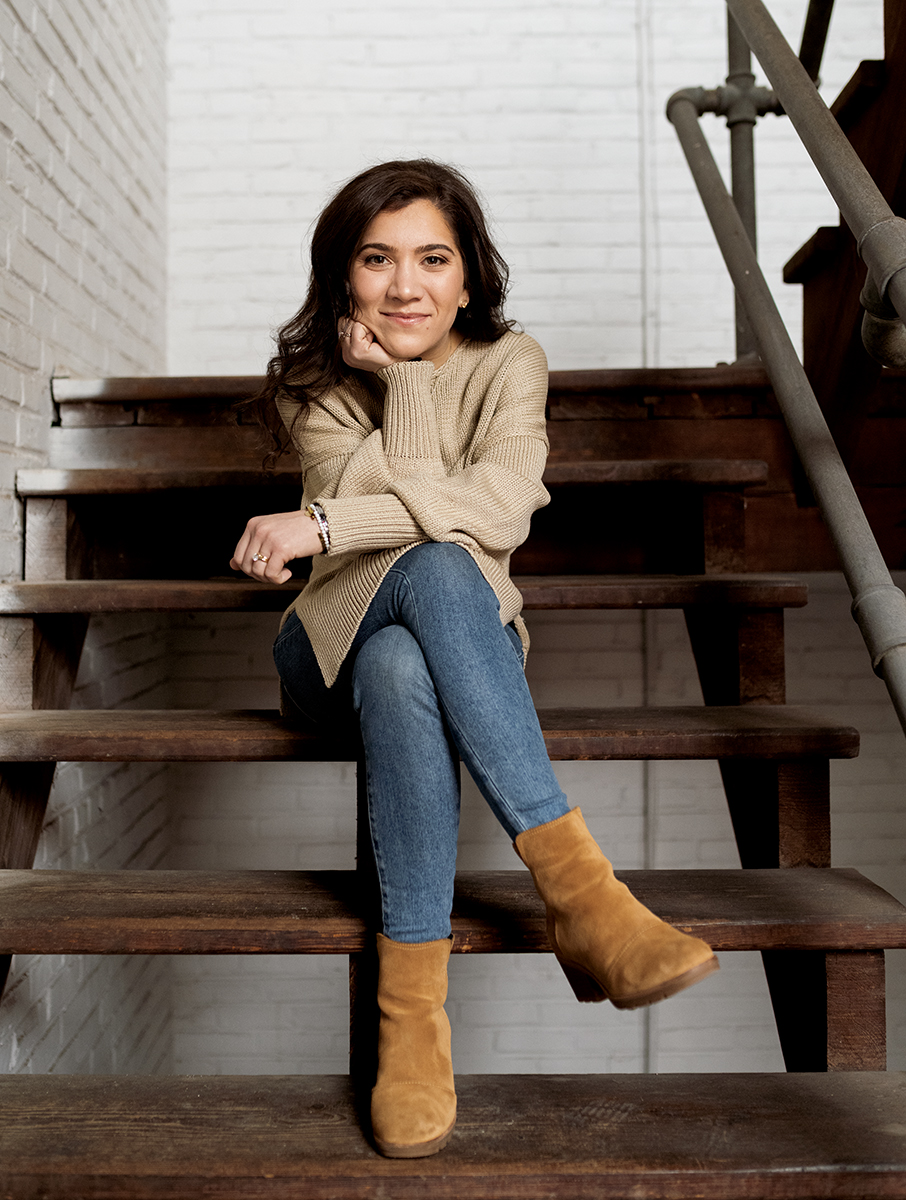
When I see a problem, I really thrive in coming up with all kinds of creative possibilities. I get an idea, and I feel that urgency to make it happen.
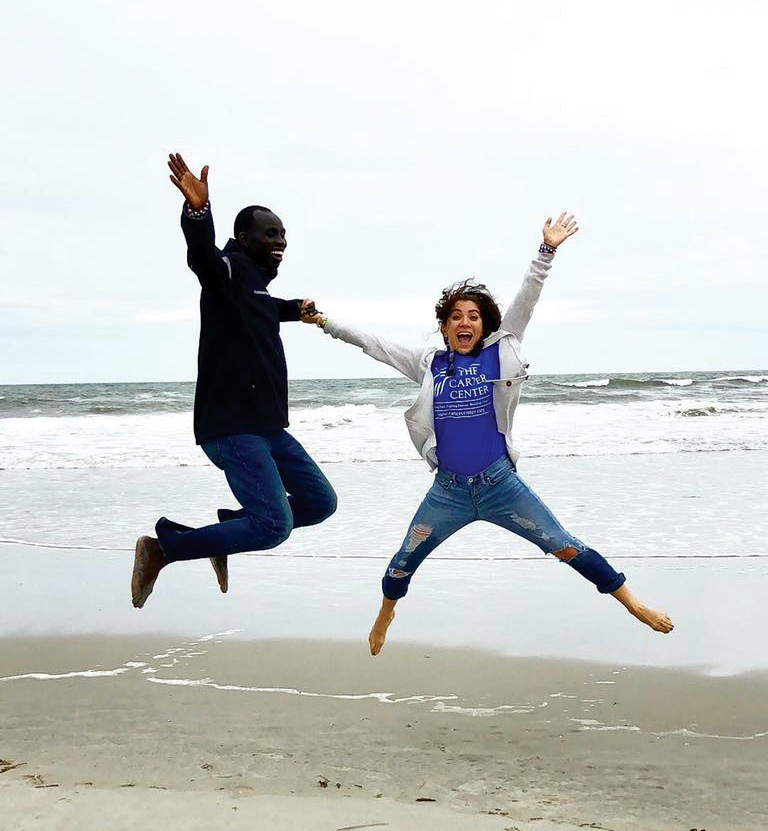

Life Lessons
When Dickstein Hughes started taking political science classes at Rutgers, she experienced a growing sense of unease. Her political science classes felt cynical and competitive. But Dickstein Hughes was anything but that. Even in college, she still relished daily calls with her Grammy who regularly shared inspirational maxims and proverbs, like “the more you know, the more you grow,” “listen to learn, and learn to listen” and “knowledge is power.” These axioms spoke to a more visceral aspect of herself, in part because her own personal experiences underscored just how short life can be.
When she was 16, her best friend, Alicia DiNatale, died after a 13-month battle with a rare form of cancer called adenocarcinoma. “Having someone your age pass away really shakes you,” she says. “I was in denial that she was going to die until the very moment she was dead. I channeled that depression into getting straight As.”
So, when she found herself at Rutgers in a major that didn’t suit her, she started to panic. She met with her college dean, Justine Hernandez Levine, and as she began to share her concerns, the floodgates that she kept so firmly in place burst open. “The dean showed me so much grace, and she started asking questions about my work and how I invest my energy,” Dickstein Hughes recalls. “I told her how I taught swim, Hebrew school, and Model UN classes and about tutoring kids. She said, ‘You notice there’s a common thread here?’ It was a clarifying moment—understanding that my life goal is to help people. I’ve always seen myself as part of something larger, and that’s what my turn to teaching was about.”
Student of the World
After earning her master’s degree from Rutgers Graduate School of Education in 2009, Dickstein Hughes student taught at Haddonfield Memorial High School, and that’s where she found her permanent home—teaching world literature, composing poetry, public speaking, drama, and Shakespeare for grades 9-12.
In her third year of teaching, she earned a grant to study at the Folger Shakespeare Library in Washington, DC, for 4 weeks over her summer break. She discovered a passion for teaching Shakespeare that influenced her approach in the years to come. “The whole premise of the Folger method is like 3D Shakespeare, like getting Shakespeare on its feet,” says Dickstein Hughes. “And that’s how I approach everything I teach. How can I bring content to life for my students?”
She later studied at the University of Oxford in Oxfordshire, England, for a summer and attended the Utah and Oregon Shakespeare Festivals, enriching her Shakespearean cultural understanding. “When I teach Shakespeare and the classics, I teach all of this work through a social-justice and contemporary lens—not within Shakespeare’s context, but within the context of now,” Dickstein Hughes says.
With each new experience, her North Star grew brighter: She focused on bringing works of literature to life and creating cultural capital for her students. To develop those relationships with the texts, she introduced vehicles for connectivity. For example, her students record a podcast called Bardcasts and (prior to COVID-19) perform Shakespeare at local venues.
In 2015, she began teaching Ishmael Beah’s A Long Way Gone: Memoirs of a Boy Soldier and found a way to form an unbreakable connection to the text and change lives in the process. Her now-husband, Phil, who spent several years in the Peace Corps, connected her with a former child soldier named Garang Buk Buk from South Sudan. Several weeks into teaching the book, Buk offered to Skype with the class and share his story with them. “It was one of the most powerful moments of my career. You could hear a pin drop,” she recalls. “The first time we did this, those first 45 minutes changed how my students saw the world.” The Philadelphia Inquirer reported: “‘I did not come from a traditional background,’ Buk said as he introduced himself through the crackle of a turbulent Skype connection. ‘I was formerly a child soldier.’”
In February 2018, Buk was offered a spot in Emory University’s master’s program for sustainable development. While scholarships would cover part of his tuition, he needed to prove he had the resources to financially support himself in order to get a visa. “My students knew Garang had gotten into Emory, but they didn’t understand why he wouldn’t be afforded the opportunity,” she recalls. So, Dickstein Hughes and her students got to work, creating a GoFundMe account and ultimately raising $50,000 to support Buk’s educational pursuits. “I just remember being scared to death, thinking, This is definitely how I will lose my job. But it was the right thing to do. How can I talk to my students about being a global citizen, knowing that we had the means and the ability to help but didn’t?” Dickstein Hughes says. “It wasn’t about just the fundraising; it was about sharing his story. And then having him earn a development degree where he can go to his community and improve the circumstance in South Sudan.
“The year I turned down the Peace Corps was the year I met Garang. And I always think that was meant to be,” Dickstein Hughes explains. “I believe I was meant not to go abroad, and I was meant not to join the Peace Corps. I was meant to serve the public good in a different way, and ultimately to invest in the world in this way.”
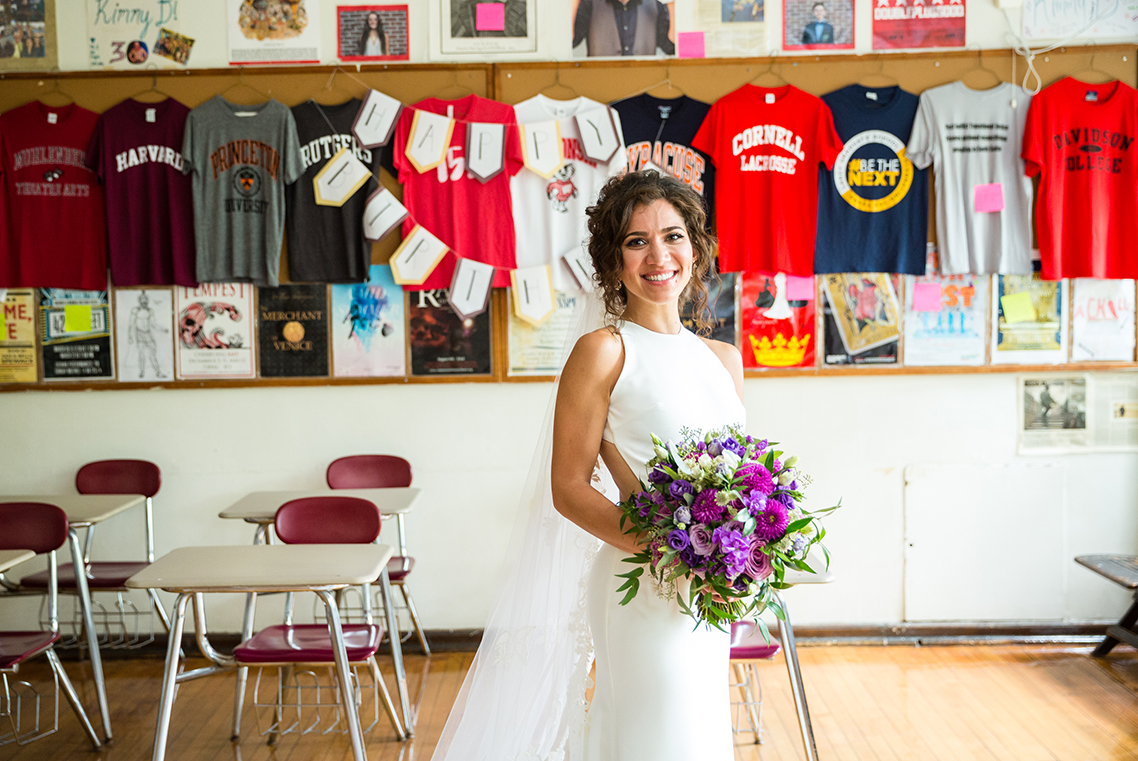
School of Life
Spawned by the remarkable—and successful—effort to get Buk the financial support he needed for his visa, Dickstein Hughes was recognized as New Jersey’s Teacher of the Year in September 2019. Just weeks later, she and her husband, Phil, were married at the school with students and faculty by her side. “Phil and I had visited multiple gardens and city venues, and I made the same comment every time: It’s nice, but my students can’t get here. That really mattered to me because I went to my high school class advisor’s wedding ceremony, and I remember feeling so honored to be invited and share that moment,” she says. “As a joke, Phil
said, ‘You need to find us a place in Haddonfield!’ And that’s exactly what I did!”
As part of the Teacher of the Year award, Dickstein Hughes went on sabbatical to work for the New Jersey Department of Education for 6 months in January 2020. Then COVID-19 hit, and she was deployed to produce a public television program for NJ PBS to help reach students who had limited or no access to the Internet and couldn’t participate in remote learning. Dickstein Hughes hosted the program, called Learning Live, for which more than 200 New Jersey teachers volunteered.
At first, she was buoyed by the local and national support teachers were receiving, as educators were almost universally lauded for their efforts. However, the response turned sour in many places, and schools and educators came under fire for expressing concerns about returning to the classroom without sufficient safety measures in place. “When teachers began opening up and expressing their fears about everyone’s health and safety, the narrative swung back to this idea that educators are lazy or don’t want to work. The unknowns around COVID-19 coupled with balancing childcare or being isolated from compromised family members placed an additional burden on educators who were trying to create a sense of normalcy for children during an abnormal time,” she says. “My concern now is the irreparable harm that the debate around remote learning has caused to the teaching profession. In a time when we should be doing everything we can to recruit and retain the best educators, I worry that we will lose them to professions with better pay and respect as a result of this unrest.”
But Dickstein Hughes isn’t one to be easily deterred. She says she is more determined than ever to advocate for teachers and encourage them to own their power. “I don’t understand why we as a country expect schools and teachers to solve problems without empowering us to solve them,” Dickstein Hughes says. “What’s it going to take for educators to own the collective power of shaping our nation? There is no greater power than that, and we should harness it, we should celebrate that. We should honor that, and that’s what I am going to do.”

